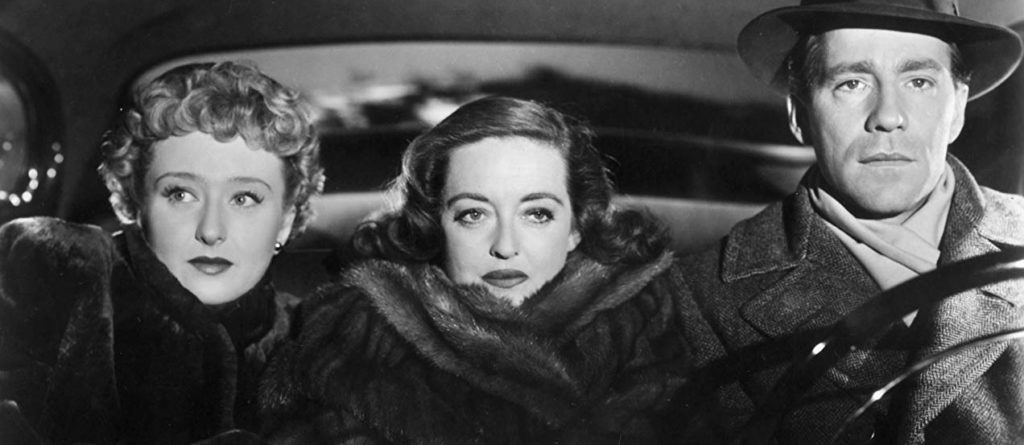Classic Hollywood: The Eyes Have It

Nobody looked like her. Spoke like her. Or smoked like her!
Bette Davis wasn’t an actress. She was a force of nature.
The two-time Oscar winner was born on April 5, 1908 in Lowell, Massachusetts. She arrived “between a clap of thunder and a streak of lightning that almost hit the house and destroyed a tree out front,” Davis recalled. “As a child, I fancied that the Finger of God was directing the attention of the world at me.”
Davis’ father Harlow took a powder in 1915, leaving mother Ruthie to raise two girls alone. Baby sister Bobby “cried her eyes out,” while steel-willed seven-year-old Betty “started planning our life without him.” In her teens, she re-branded herself “Bette” (from Balzac’s novel, La Cousine Bette) and pursued stage roles. At age 22, after cutting her teeth on Broadway, Davis was summoned to Hollywood by Universal Pictures.
The studio greeted her arrival with…silence. A Universal executive later reported, “We sent a man to the train station, but he didn’t see anyone who looked like an actress.” Production chief Carl Laemmle Jr. piled on, saying, “She’s got about as much sex appeal as Slim Summerville.” (Google him, kids.)
Davis agreed that she made a mousy first impression: “I was the Yankee-ist, most modest virgin who ever walked the earth.” An earlier screen test left producer Samuel Goldwyn similarly underwhelmed. “Who did this to me?” Goldwyn demanded after watching Bette’s audition.
In 1931, Davis made her forgettable film debut opposite fellow newbie Humphrey Bogart in a stinker called Bad Sister. For the next year, both actors languished in mediocre dramas. Just when Bette was ready to beat it back to New York, she gained acclaim for The Man Who Played God (1932). Warner Bros. signed Davis for $300/week, launching what would become an 18-year pitched battle for scripts worthy of her explosive talent.
Fans flocked to Bette’s hit pics Dark Victory, The Letter, The Little Foxes, Now, Voyager, Mr. Skeffington, A Stolen Life, All About Eve and her Oscar-winning performances in Dangerous and Jezebel. The press dubbed her “The Fourth Warner Brother,” reflecting her box-office dominance. Olivia de Havilland called her “a benevolent volcano,” while one critic quipped, “Bette Davis would probably be burned as a witch if she had lived two or three hundred years ago.”
On screen, she delivered such legendary lines as, “I’d like to kiss ya, but I just washed mah hair,” “Don’t let’s ask for the moon. We have the stars,” “What a dump!” and “Fasten your seat belts. It’s going to be a bumpy night.” Off screen, she never apologized for her “difficult” rep (“When they want a broad with balls, they call me”).
Davis died in Paris on October 6, 1989, outliving two of her four ex-husbands and Tinseltown nemesis Joan Crawford. The French newspaper LeMonde lamented: “The impossible has happened. The screen bitch with the too-big eyes, the ambitious devourer of Hollywood, the she-wolf, is dead. One doesn’t cry for Bette Davis. One salutes her.”
Fittingly, Davis had the last word with the epitaph she wrote for her tombstone: Here lies Ruth Elizabeth Davis. She did it the hard way.
Classic Hollywood posts appear bi-monthly on The Music Hall blog.
